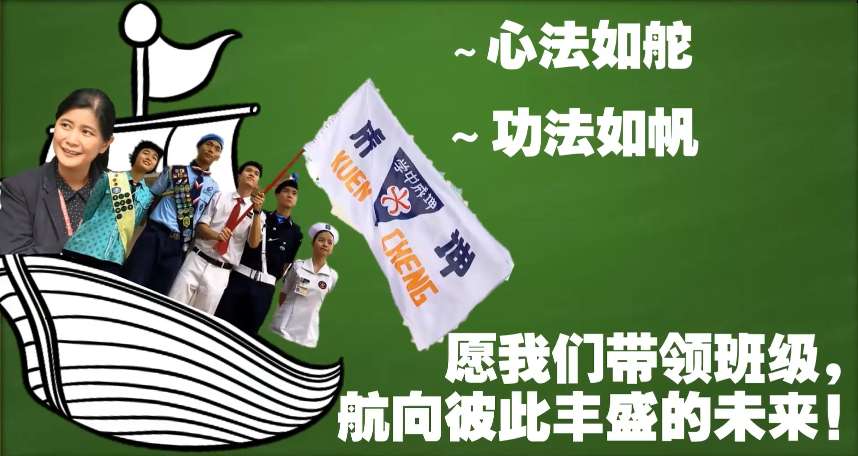Jointly reported by:
Wong Bry Yan Jr3Z(4)
Sofea Chang Hui Zhou Sr1ComB
Benedict Koo Xiang Yu Sr3B
After four years of its establishment, the Class Monitor Club held its first ever team camp, an online event, to help its members gain important soft skills such as communication and conflict resolution. The camp was divided into two sessions, with activities being held on the 7th of May and 14th of May respectively.

“Hearsay”
The President of the Club, Rachael Ling, began the first day of the camp with a heartfelt welcome to all of the members. The schedule of the first day was a 5-minute introduction and a 30-minute ice-breaking session which included exciting games and activities prepared by the Club Committee, followed by a two-hour talk and the day’s conclusion.
Before the ice-breaking session started, everyone was divided into groups of 10 to 11 people of which consisted of 2 to 3 group leaders each. There were more than 20 groups in total. There were 3 activities prepared for each group but due to the time limit some groups were only able to undergo one or two activities. Either way, everyone was warmed up and were ready to listen to the talk that would soon begin.
The camp commenced with a 2-hour talk given by the Head of the School’s Counseling Department, Mr. Tan Yong Chin. The talk was centered around the theme of the camp “Hear & Say 听 · 说”, and mainly focused on the process and methods of communication.
Before the camp started, all the club members gave Mr. Tan a huge round of applause and greeted him eagerly. He was delighted to see such friendly students. He asked everyone to prepare a piece of A4-sized paper to be used during the talk.
Firstly, he talked about the communication issues that class monitors might face in class. He conversed with a few students who were willing to share their opinions around these issues and about their current situation and experiences. Mr. Tan gave some explanations and solutions to their problems regarding class leadership and communication issues.
The highlight of the talk was arguably the parental role-play section, where 10 students were asked to act as 5 different types of couples, while the other students were asked to show how they would react as children to their parent’s behavior. It was very interesting to see each “couple’s” acting and learn how parents’ relationship and behavior could in turn reflect on their children’s conflict resolution styles. For example, in families with parents that constantly quarreled, the “children” often chose to remain silent, or were forced to take a side in arguments; in families with loving parents, the “children” tended to feel more comfortable bringing up their issues to their parents and often had better communication with them.
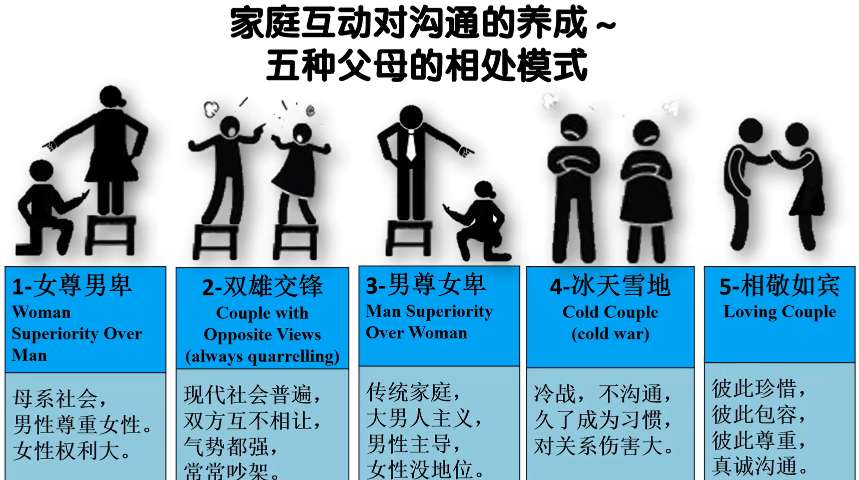
Types of Parental Relationships
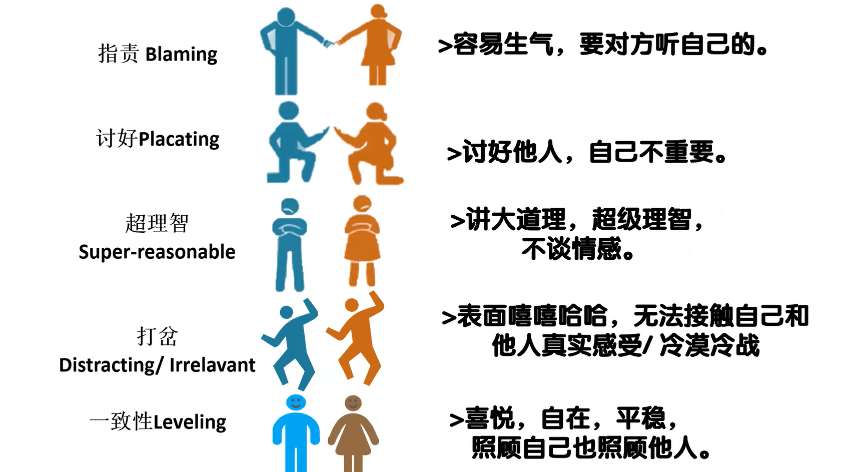
Types of Conflict Resolution Styles

Effect of Parents’ Relationships on Conflict Resolution Style
Class monitors were also given a few situations in which they had to choose a resolution style that was most similar to their own. They were given time to enter breakout rooms and discuss their conflict resolution styles and how others responded to them.
After a short break, Mr. Tan reentered the second half of the talk, in which he elaborated on the effective ways of conflict resolution. He used Satir’s “Leveler” communication style as a framework for how a conflict-free class environment could be cultivated under the leadership of class monitors. He emphasized that a healthy class environment can only be cultivated if class management is balanced out with good relationships between students.
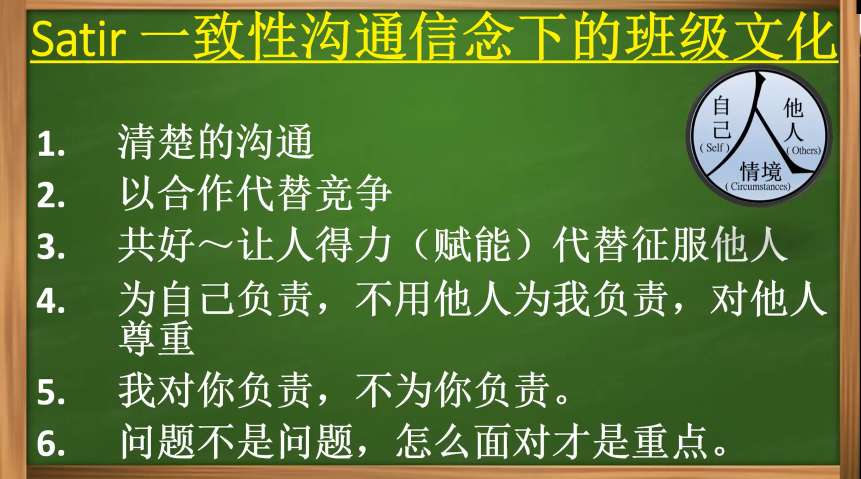
A “Leveler” Class Culture
Mr. Tan went on to share other effective methods of communication, one being listening to others. He shared how the RASA acronym could be used to understand the needs of other people. He also emphasized the importance of eye contact and body language when talking to other people, with 55% of meaning communicated through body language, 38% through tone of voice, and only 7% through spoken word.
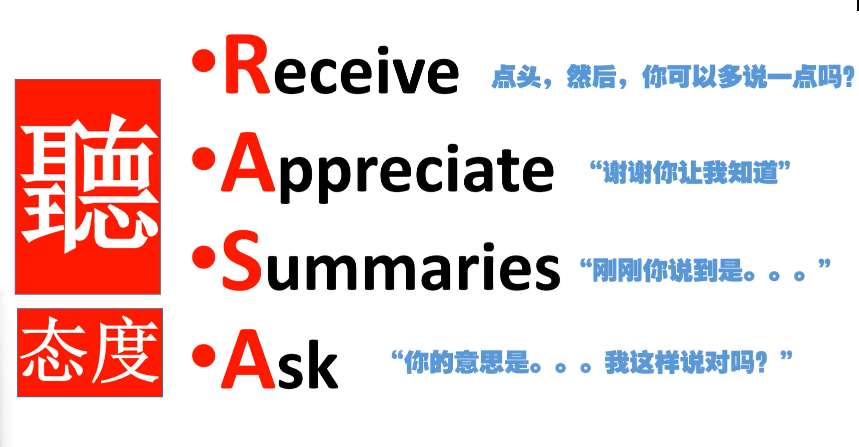
RASA
Mr. Tan then showed four steps to effectively talk to other people in the case of conflict: stating the facts, expressing your feeling towards said facts, expressing your needs towards the person, and stating the common goal.
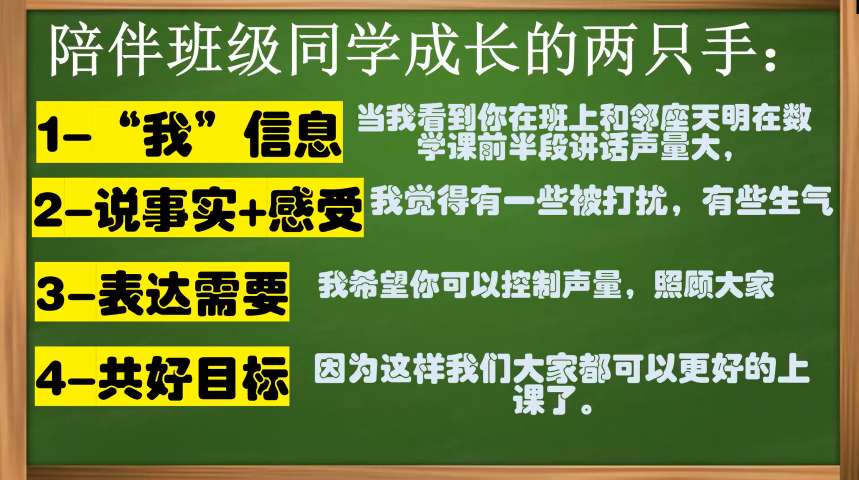
The 4 Steps of Communication
At the end of the talk, the class monitors were given tasks to complete, which required them to implement two aspects of Satir’s healthy communication culture in their own respective classes.
The first day of the team camp concluded with some words from Mr. Pang Chung Seong, Assistant Head of the Discipline Department who emphasized once again the importance of interpersonal communication in people who have leadership roles.
End of Team Camp – Day 1
To kick off the second day of the camp, a group sharing session was held to garner students’ outlook on the camp in hopes of ensuring the effectiveness of the previous week’s talk. Students were asked if their participation in the camp had brought about changes in their lives. Many students agreed that through active participation, they were able to broaden their perspective on effective leadership and communication skills, which would be of paramount importance for them to lead their classes towards excellence.
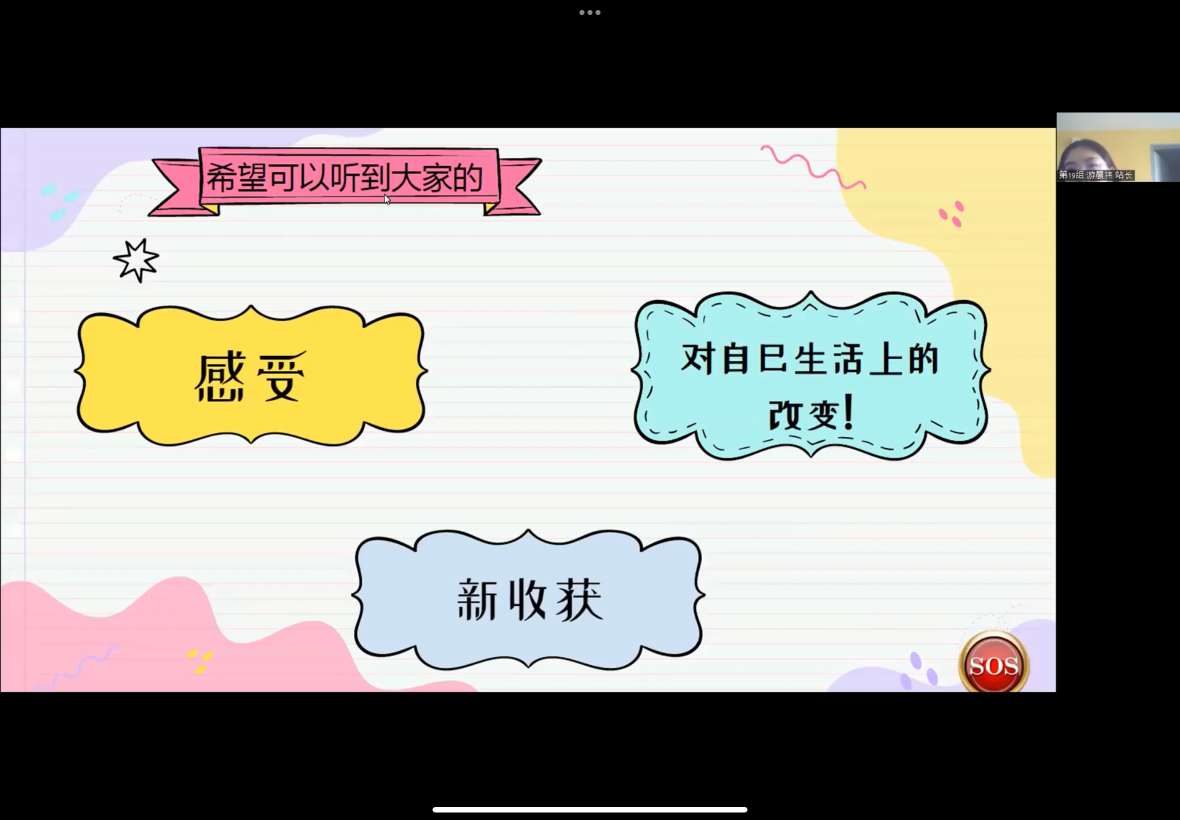
Group Sharing Session
Moving forward, each class representative was required to pitch ideas for a “Communication Culture Proposal”. The Google Form result showed that the “Clear Communication Method” was preferred by the majority. Some students hoped to bring in waves of change to the toxic environment of their classes and amalgamate classmates from all backgrounds through this agenda. Common issues such as frivolous fights and lack of transparency in classes were also highlighted during the activity.
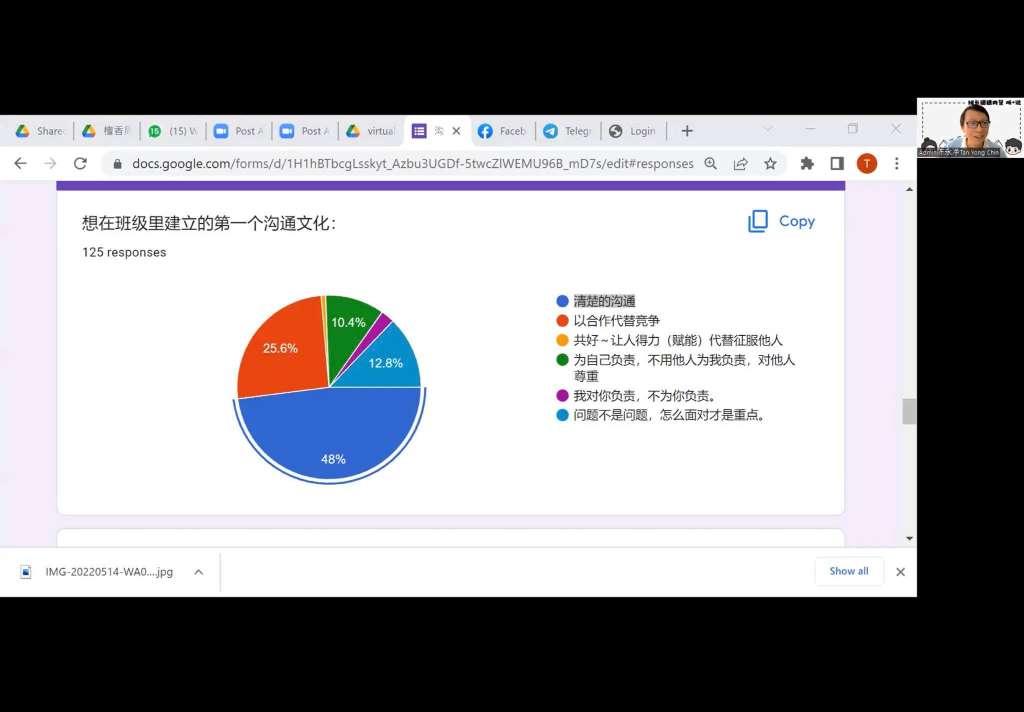
“Communication Culture Proposal”
Mr. Tan Yong Chin shared insightful tips to combat miscommunication such as by taking responsibility for your words and respecting everyone’s boundaries. If class monitors encounter bullying or spreading of false report or rumours, Mr. Tan believed they should bear responsibility by speaking up. Group photos were taken with Mr Tan giving his best wishes for the Class Monitor Club team.
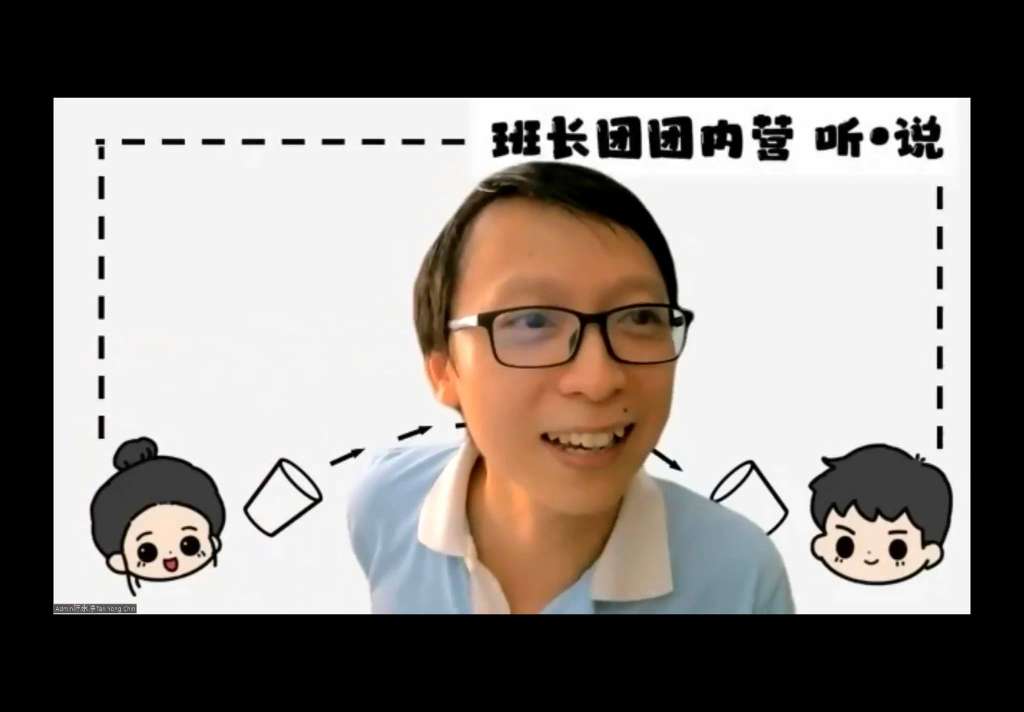
Mr. Tan Yong Chin
Before the end of the camp, each student wrote a letter to their future selves. The letters will be returned to them six months later as a way for them to reflect on their past and strive for improvement.
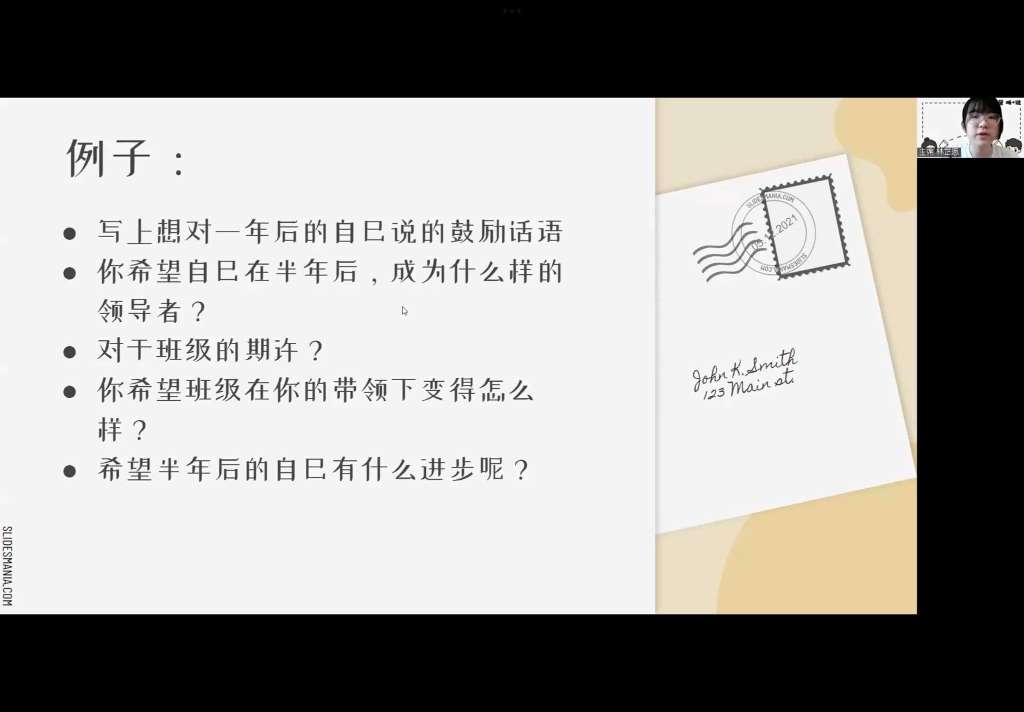
Letter Writing Session

